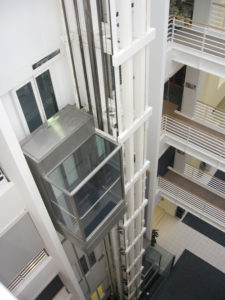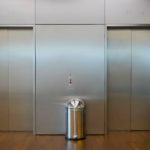An engineering advice service for Environmental Health Practitioner’s (EHPs) has been launched to fill a gap in knowledge within councils.
The L & P (LOLER & PUWER) Support Service assists EHPs manage lifts and, more specifically, comply with the requirements of the Lifting Operations & Lifting Equipment Regulations (LOLER) and the Provision & Use of Work Equipment Regulations (PUWER).
Developed by leading engineering consultants LECS (UK), the service helps environmental health practitioners and local authorities fill a gap in knowledge and expertise when it comes to the technical aspects and legal obligations of lift maintenance and managing defects.
The team at LECS UK translates LOLER reports into plain English and provides professional advice to EHP’s on what exactly is needed, when and why. It also aims to cut the time that EHP’s spend on LOLER Regulation management by 75% and provides assurance that vital defects are being remedied.
Dave Cooper, MD of LECS (UK) said: “The duty of care and technical knowledge required to maintain a lift and/or make decisions on what actions to take following a LOLER report can be complex. Unsurprisingly, EHP’s are often at a disadvantage when deciphering these engineering reports. The management of these reports can be time consuming, costly and the workload cannot be predicted — which is difficult for EHP’s that already manage a diverse range of disciplines.“
 Liz Vann, Senior Chartered Environmental Health Officer at Torfaen County Borough Council, added: “Understanding and dealing with the technical details of these reports as well as the potential engineering issues involved is exceptionally important. I have turned to LECS UK for professional advice on these matters and have found it extremely helpful and good value. The reports and immediate actions are explained quickly and an outline action plan is provided, making the entire process remarkably efficient and most importantly safe.”
Liz Vann, Senior Chartered Environmental Health Officer at Torfaen County Borough Council, added: “Understanding and dealing with the technical details of these reports as well as the potential engineering issues involved is exceptionally important. I have turned to LECS UK for professional advice on these matters and have found it extremely helpful and good value. The reports and immediate actions are explained quickly and an outline action plan is provided, making the entire process remarkably efficient and most importantly safe.”
In accordance with Regulation 9 of The Lifting Operations and Lifting Equipment Regulations 1998, every passenger lift needs a thorough six monthly examination by a competent person. They are then legally required to notify the EHP or other enforcing authority as soon as possible of any defects that are, or could soon become, dangerous as well as any defects that need to be made good within a certain timescale. If an EHP is notified of a serious defect that requires immediate attention they need to be satisfied that the lift has been taken out of service until the defect has been addressed. For other defects the EHP needs to ensure that the equipment is repaired or replaced within the specified time, and not use the lift after that time unless the defect has been satisfactorily remedied.
Dave Cooper of LECS UK said: “Herein lies a very understandable problem. These reports tend to be quite technical and the seriousness of a potential defect might not be completely appreciated.”
The L&P Support Service is provided to councils on a minimal monthly retainer basis to help make an often technically challenging process more time and cost efficient, while also ensuring that lifts operate within the required standards and legal obligations. Authorities that sign up for the service also benefit from a discount on LEC (UK)’s Expert Witness Service — should an investigation into a lift accident be required.

